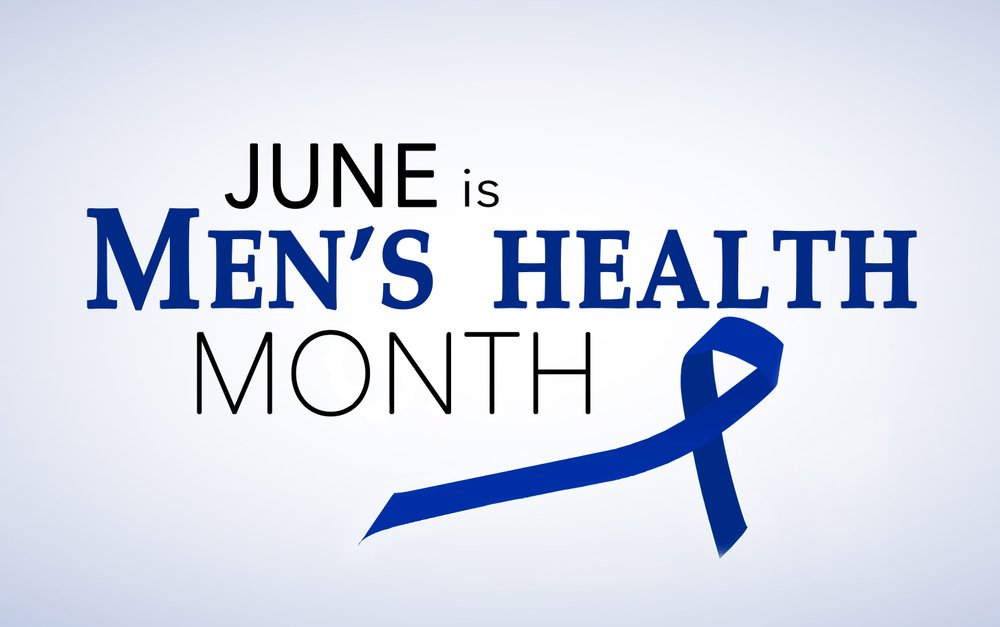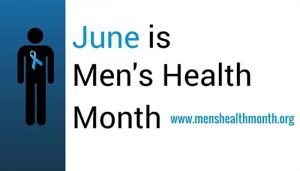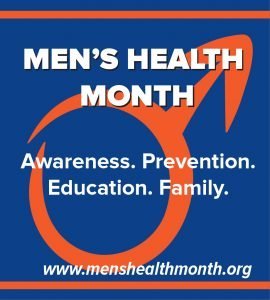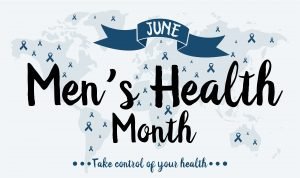Celebrated each year during June, Men’s Health Month brings awareness to the health issues all men face. Hosted by Men’s Health Network since 1992, the month is dedicated to enriching men’s health and wellness through a broad spectrum of national screening and educational campaigns.
Men’s Health Month is an annual observance aimed at raising awareness of preventable health problems and encouraging early detection and treatment of disease among men and boys.
Across the country at health fairs and other health education and outreach activities, the focus of this month is encouragement of men, boys, and their families to take control of male health issues with the proper screenings and care.
Goal of Men’s Health Month
Did you know that men, on average, die almost five years earlier than women? Part of the reason is that men are more reluctant to go to the doctor, according to menshealthmonth.org. In fact, studies show that women go to the doctor twice as much as men.
Additionally, Men’s Health Network notes that certain conditions are more prevalent in men, which patients and their doctors should keep an eye on through regular appointments.
Thus, the purpose of Men’s Health Month is to heighten the awareness of preventable health problems and encourage early detection and treatment of disease among both men and boys.
This month gives health care providers as well as individuals an opportunity to encourage men and boys to seek regular medical advice and early treatment for disease and injury.
Focusing On Male Health In Seniors
It’s important as a senior man to brush up on your health facts, listen to your body and be sure to get regular checkups. Not only will you live longer, you’ll have a better quality of life.
General Health – Even if you don’t feel sick, if it important to see your doctor regularly and schedule annual exams. Here are some of the screening tests recommended by Johns Hopkins for men 65+:
- Abdominal aortic aneurysm
- Blood pressure
- Colorectal Cancer
- Depression
- Diabetes mellitus, type 2
- Lipid disorders
- STD
Illness – It seems simple but if you’re sick — see your doctor. According to the Health in Aging Foundation, 40% of men said that when sick, they delay seeking medical care for a few days; and 17% percent said they would wait “at least a week.” Don’t wait. Prompt medical care can be the difference between life and death.
Medications – It’s important to take medications as directed, and especially for seniors to keep a complete list of medications and dosages handy. Always inform any doctor you visit about your medications – the more they know about your meds, the better they can look out for potentially life-threatening drug interactions. The older you get, it’s common you may be on more daily prescriptions and medications; so with increased medications you run a greater the risk of side effects and adverse interactions.
Vaccines and Inoculations – Keep up with recommended shots, including for flu, shingles, pneumonia and diphtheria/tetanus, is vitally important — especially for the elderly men in our lives.
Healthy Eating – Older men have specific dietary needs. They need more calcium, vitamin D, fiber and potassium. Experts recommend limiting fat calories to 20 to 35 percent of your diet and suggest the following guidelines for daily calorie needs for men 50 and over:
- Not active: 2,000
- Moderately active: 2,200 to 2,400
- Active: 2,400 to 2,800.
Additionally, it is recommended that senior men try to incorporate 30 minutes of physical activity, 5x a week into their daily schedule (physical limitations, permitting.)
Use Sunscreen – Up to 50 percent of Americans who live to age 65 will have at least one skin cancer, and Caucasian men are particularly at risk. It’s never too late to take steps to prevent further damage from the sun. Try to avoid the sun during peak hours from 10 a.m. to 4 p.m., wear a hat and sunglasses, and liberally apply SPF 30 or greater sunscreen to all exposed skin.
Raising Social Media Awareness Regarding Men’s Health
During Men’s Health Month, you can use social media to share education and awareness about men’s health issues around the world. You can help spread the message of protecting men’s health by using the hashtags: #MensHealthMonth and #ShowUsYourBlue
Wear Blue Day
Plan a “Wear Blue Day” to help spread the knowledge of Men’s Health Month!
The statistics show that men deal with more illness than women, and die younger. Wear BLUE was created by Men’s Health Network to raise awareness about the importance of male health and to encourage men to live longer and healthier lives.
Whether it is your friend, brother, dad, boyfriend, spouse, or boss, show them you care about them and their health by wearing blue.
Wear BLUE also raises awareness and money for education about men’s need to seek regular checkups, or testicular cancer education, prostate cancer education, or other health issues that affect men. (Cardiovascular disease, skin cancer, lung cancer, diabetes, gout, and more.)
Read more about Wear BLUE here.
These are just a few ways for men to stay healthy as they age and a great time to commit to better health is during Men’s Health Month! Do it for yourself – and your family.
For more information and resources, go to http://www.menshealthresourcecenter.com/aging-seniors/.



